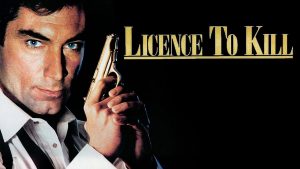In First Ruling Of New Year, Supreme Court Again Defends Police's License To Kill
Where you come down on this case probably has a lot to do with whether you think "qualified immunity" is a bug, or a feature.
 The Supreme Court was back to work on Monday, and established that police will be held no more accountable for their actions in 2017 than they were in 2016. Amidst various orders and denials of cert, the Court found time to issue an eight-page per curiam opinion, overturning the 10th Circuit in a police brutality case.
The Supreme Court was back to work on Monday, and established that police will be held no more accountable for their actions in 2017 than they were in 2016. Amidst various orders and denials of cert, the Court found time to issue an eight-page per curiam opinion, overturning the 10th Circuit in a police brutality case.
The case is White v. Pauly. According to reports, two police officers went to the home of Daniel Pauly investigating reports of road rage and drunk driving. But they didn’t go in like they do in the movies. From the ABA Journal:
The first two officers approached the home “in a covert manner,” using flashlights intermittently as they approached, the Supreme Court said, summarizing the record in the light most favorable to the brothers.
When the Pauly brothers became aware someone was outside they yelled, “Who are you?” and “What do you want?” The two officers allegedly laughed and told the brothers to “come out or we’re coming in.” The officers say they identified themselves as state police, but the occupants of the home heard no such warning.

The Business Case For AI At Your Law Firm

Officer Ray White showed up late as the third officer on the scene. He claims all he heard was somebody in the Pauly house shout “we’ve got guns.” You know where this is going. Police claim that Daniel Pauly fired two shotgun shots out of his front door. The police opened fire. Ray White hit Samuel Pauly, Daniel’s hapless brother, and killed him. White claims that Pauly pointed a gun at him.
There’s no video, so I have no earthly reason to believe the police’s version of events. I have slightly more reason to believe the trial court, which found in favor of the Paulys and against the cops. The 10th Circuit affirmed the verdict, finding that officer White violated a “clearly established law,” thus piercing the immunity usually enjoyed by police officers engaged in the course of their duties. The 10th Circuit found that White should have offered a warning before shooting a man to death.
The Supreme Court disagreed.
According to the Supreme Court, the 10th Circuit majority “misunderstood the ‘clearly established’ analysis: It failed to identify a case where an officer acting under similar circumstances as Officer White was held to have violated the Fourth Amendment.”
Sponsored

Legal AI: 3 Steps Law Firms Should Take Now

Early Adopters Of Legal AI Gaining Competitive Edge In Marketplace

The Business Case For AI At Your Law Firm


Legal AI: 3 Steps Law Firms Should Take Now
That’s some violently circular logic: the police cannot be held accountable unless there is some other case where they were held accountable. The Court is essentially saying that as long as nobody gets in trouble, nobody can get in trouble.
And remember, this is an unsigned, per curiam opinion. We couldn’t even get one justice to stand up and say that this is crap. In fact, the Court seemed annoyed that they even had to deal with another case of the law trying to punish officers who shoot people to death:
Noting with more than a hint of frustration that in recent years it had issued “a number of opinions reversing federal courts in qualified immunity cases,” the court emphasized that the concept of “clearly established law” is quite narrow: It “should not be defined ‘at a high level of generality,’” but instead must hew fairly closely to the facts of a particular case.
Where you come down on this case probably has a lot to do with whether you think “qualified immunity” is a bug, or a feature. “Law and Order” types think police should have wide latitude when performing their dangerous duties. I think giving a paramilitary force the authority of the state means we can demand the highest standard of care. A “shoot first, ask questions later” mentality is roguish on James Bond, but it is terrorizing on a cop making the rounds.
Here, White showed up late, didn’t know what was going on, opened fire, and killed a man. He should have bee required to say “I’m a cop” before doing that. And if he found it too dangerous to follow the 4th Amendment in real time, then he should be required to find another job.
Sponsored

Is The Future Of Law Distributed? Lessons From The Tech Adoption Curve

Navigating Financial Success by Avoiding Common Pitfalls and Maximizing Firm Performance
But the Supreme Court does not agree with me. They’re not here to hold cops accountable. And they’re pretty sick of people asking them too.
A summary ruling and four CVSGs, but no grants, from today’s orders [SCOTUSblog]
Supreme Court rules for cop in suit over fatal shooting [ABA Journal]







